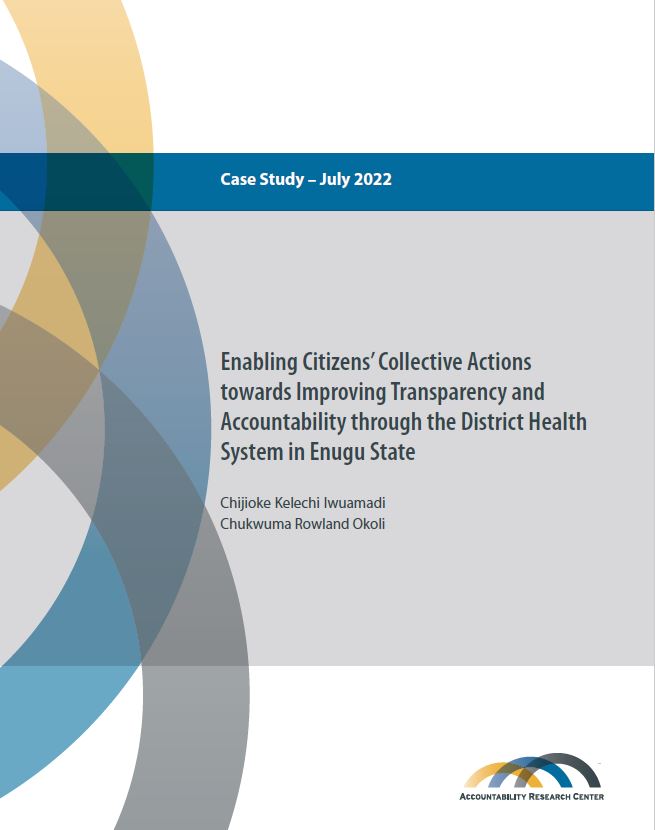
Enabling Citizens’ Collective Actions towards Improving Transparency and Accountability through the District Health System in Enugu State
Date: July 2022
Author(s): Chijioke Kelechi Iwuamadi and Rowland Chukwuma Okoli
Publication type:
Published by: Accountability Research Center
“Sandwich strategies” are interactive processes in which reformers in government take tangible measures that reduce the risks of citizen action from below, driving virtuous circles of mutual empowerment between pro-accountability actors in state and society. This case study is one of a set of 18 published here, which are among those included in comparative analyses of whether and how sandwich strategy initiatives drive institutional change.
Government transparency, accountability, and citizen’s participation are generally lacking in Nigeria’s health system, contributing to poor healthcare delivery. In 2003, a progressive governor in Enugu state initiated reforms that sought to enhance transparency and accountability in the health system by opening up the space from above, to catalyze citizens’ actions from below.
In 2005, the Enugu state government devolved resources and authority to health facility committees under its District Health System policy. Health facility committees consisted of community representatives and were responsible for maintenance of the facility, as well as some oversight of health facility staff. They also managed drug revolving funds. Drug revolving funds, managed by health facility committees, helped to engender accountability and transparency in the state’s drug management system. Community members, as co-signatories, ensured that all cash withdrawals by health facility staff were used only for drug procurement. Health facility committees also helped health facilities function better by providing security and maintenance services, as well as monitoring absenteeism and then demanding that the government provide the requisite manpower.
This case study analyzes the triggers of the reforms initiated from ‘above’, as well as examining the activities of health facility committees in response to that opening.
Chijioke Kelechi Iwuamadi holds a PhD in Political Science. He consults for regional and international organizations in the areas of democratization, governance, peace, and security. He is a Laureate of the Council for the Development of Social Science Research in Africa (CODESRIA) Methodological Institute of Qualitative Social Research in Africa, and a Research Fellow at the Institute for Development Studies, University of Nigeria, Nsukka. He is currently an Advisor with GIZ office to the African Union, on Strengthening Good Governance and Human Rights in Africa – African Governance Architecture.
Chukwuma Rowland Okoli obtained a PhD in Political Science from University of Nigeria, Nsukka and is a faculty member at Nnamdi Azikiwe University He is a grant laureate of the Council for Development of Social Science Research in Africa (CODESRIA). His research interests include conflict and security, democratic studies, civil society, and social movements.
